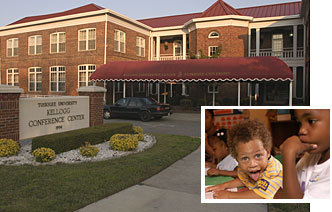Introduction
July 4th is an important date for Tuskegee University – it is not only Independence Day but also the anniversary in which this pioneering historically black university was established. Two names will forever be mentioned when the story of Tuskegee is told – Booker T. Washington and Lewis Adams.
Washington founded the institution on the historic day in 1881 and named it Tuskegee Normal and Industrial Institute. He became president and served in that capacity till his death at the age of 59 in 1915. The development of the institute is credited to Dr. Washington’s great fundraising and mobilizing ability as he started the institution with hardly any money.
Initial funding for the establishment of the institution was provided by the ingenuity of Lewis Adams. He was a member of the Republican Negro Congress who suggested to a white Democrat who was seeking re-election in Alabama that one sure way of securing the Black vote was by establishing a school for them. When the Democrat, Wilbur F. Foster, won re-election, he delivered on his promise and the school was established with an annual allocation of $2,000 to pay teachers.
The school started with a class of 30 adult learners in a room donated by a local church, but under Washington’s visionary leadership, it soon purchased 100 acres of an abandoned plantation and this is the central part of the university today.



